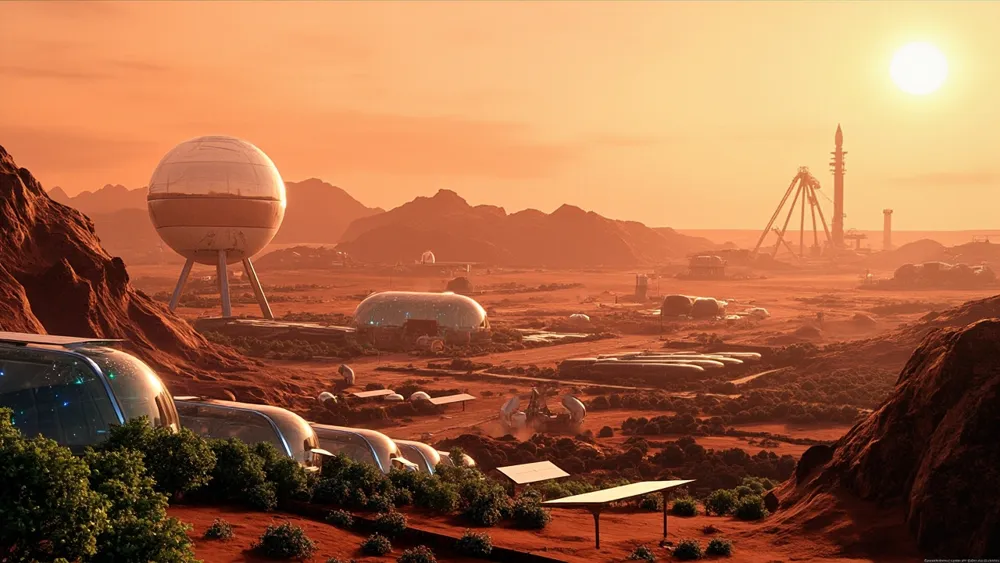Economic Impact of Mars Colonization Initiatives

The recent coverage of the Mars Desert Research Station (MDRS) in Utah underscores a pivotal moment in humanity's quest for extraterrestrial colonization. As discussed in the CNBC article, the facility serves as a preparatory ground for prospective Mars missions, closely resembling the conditions and challenges that future astronauts would face on the Red Planet. With public curiosity surrounding space travel at an all-time high and companies like SpaceX gearing up for potential manned missions as early as 2029, the significance of MDRS and similar initiatives cannot be overstated.
The interest in long-term human habitation on Mars reveals profound economic trends that intertwine scientific inquiry with commercial ambition. According to SpaceX, a monumental shift in the aerospace industry may be upon us. As these endeavors align with public interest, investments in space technology and research facilities are likely to surge, impacting sectors from engineering to resource allocation on Earth and beyond. In 2023 alone, NASA allocated approximately $5.4 billion for its human exploration initiatives, a figure that is expected to grow as private players like SpaceX push the boundaries of what's possible.
Evaluating the potential risks and opportunities offers a dual perspective crucial for stakeholders—including investors, regulators, and consumers—involved in the space colonization dialogue. While the MDRS serves to validate the feasibility of life on Mars, the pathway is fraught with challenges. Could the bold plans to colonize Mars lead to unforeseen crises related to resource sustainability on Earth? Such questions linger in the realm of policy implications, as governments and organizations must consider the long-term ecological impact of their endeavors. Historically, periods such as the dot-com bubble remind us of the dangers of overly optimistic projections unchecked by critical analysis.
In conclusion, the exploration of Mars is not merely a scientific endeavor; it reflects larger economic forces and societal aspirations that are continuously evolving. As public interest surges and corporate strategies align with space exploration, the potential for both progress and peril looms. Understanding this landscape will be key for investors who seek to navigate the intersection of technological innovation and ecological responsibility. Balancing aspirations for human colonization with sustainable practices may very well dictate the future of space exploration—and our planet's health.
Read These Next

China's First LEGOLAND Resort Opens in Shanghai Amid Tourism Boom
Legoland Shanghai Resort opens, marking a key moment in China's tourism market and highlighting growth opportunities for investors.

5400 Repatriated to China Myanmar Thailand in Fraud Crackdown
China, Myanmar, and Thailand met to combat telecom fraud, repatriating over 5,400 Chinese nationals involved in scams.

Beer-Making Process Innovates Cleaner Disposable Diapers
ZymoChem unveils a groundbreaking method for creating biodegradable diapers by leveraging beer fermentation techniques, presenting a sustainable alternative to conventional plastic-based products.
